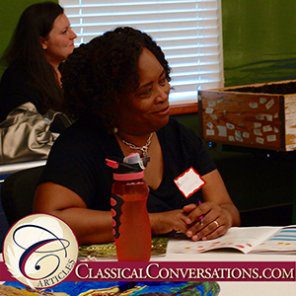Do you know the difference between spending money and investing money? Turns out my Challenge I students needed some clarity at the end of this semester. While exploring the “lessons learned” during our Stock Market Project, one student emphatically declared, “I would NEVER spend real money on stocks!” My husband (an econ major) overheard, and quickly interjected. “You are missing the point! Buying stocks is not about spending money; it is about investing money.”
Spending and investing spring from different mindsets. They come with different presuppositions, begin with different motivations, are guided by different expectations, and demand different results. These distinctions create for the spender/investor different paradigms.
When I am ready to “spend money,” I am (usually) thinking about giving up my money for something I want now. Spending presupposes that you have something valuable (capital) to trade for something else you want more (at least at the time!) than the capital. When you spend money, you are exchanging capital for some good or service that you expect to use up, enjoy, or collect. Spending money like this is a one-time exchange, and consumers know that the result of a purchase is that you have the stuff you wanted, but the money is gone forever. Investing is different.
When I invest, I am putting my money to work for me; I am giving up my money for something that I believe will continue to produce benefit to me. “Investing” presupposes that you are looking to the future, as well as the present, and that you believe that what you invest in will continue to grow in value. When you invest, you are exchanging capital for the possibilities of continued/ongoing benefit—you are expecting dividends!
I also recognize some attitude differences between spenders and investors. When I spend, I figure it is the producer’s job to satisfy me/give me my money’s worth. When I invest, I realize I have some responsibility for the outcome; in essence, I am part of the production, and my investment affects what is produced. When I spend, someone else is in charge of the product; they decide what I get for my money, and I usually can’t change that much—I get what I see/pay for; it is one size fits all/most, and there is little customizing from my side of the exchange. When I invest, I can impact the outcome; I can tailor the product by changing what/how much/how well/how thoroughly I invest. When I spend, I can be lazy, thoughtless, and cranky. I am spending my money, so I get to wait to be served, refuse to consider the nuances of my need/situation, and make demands about “my own way.” When I invest, I consider how what I give impacts what I take away; I connect my investment to my dividend.
As I considered encouraging parents across the world to join us this summer at a local 3-day Parent Practicum, I recognized some parallels, and I realized: I don’t want parents to spend three days; I want them to invest three days!
Here’s what I want parents to consider:
- If you see your three days as an investment, you will realize that what you put into the experience influences what you will take home. Come with a spirit of inquiry, ready to ask questions like “How does this apply to me? How could I use this idea or tool at home with my children?”
- If you see your three days as an investment, you will focus on how the time spent thinking with your friends at Practicum will change you, your perspective, or some of your habits. Come with an open mind, ready to soak up nuances to “old ideas” as well as “new to you” thoughts/tools/applications.
- If you see your three days as an investment, you will consider how your experience at Practicum influences your local community’s experience of classical, Christian community all through the year. Come with a heart for your neighbor. Ask yourself “How could I help someone else ‘get it’? Who at my Practicum needs a friend? How can my struggles (past and present) be redeemed for another?”
- If you see your three days as an investment, you will arrive ready to participate. Ponder the questions, offer some answers, play the games, do the activities.
- If you see your three days as an investment, you will understand that perhaps the most significant investment to be made is investing in yourself! Look for a new resource for yourself and dive in to study.
- If you see your three days as an investment, you will make notes of your insights, knowing that the realizations and insights gained at Practicum are for future reflection, and will pay off all through the year ahead.
- If you see your three days as an investment, you will be open to assessing (and reassessing) your understanding of and commitment to classical education; you will be ready to adjust your practices as necessary. Be open to changing the way you do things.
- If you see your three days as an investment, you will recognize that you are investing in others too. Look for someone at a different “stage” and compare notes.
- If you see your three days as an investment, you will remember to invest in relationships; bring a friend with you—and make a friend there.
- If you see your three days as an investment, you will see yourself as part of the production team, growing your children into Christ-followers, not a consumer of a program someone designed to educate your children.
Practicum offers us so much as educators, as brothers and sisters, and as friends. What we take away is within our control. Let’s prepare to make the most of our investment this summer!




